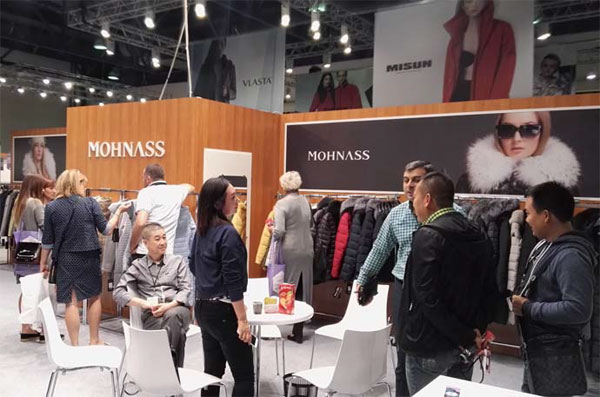Trader pulled fortune from ashes after fire
Devastated by blaze, Zheng Riwei picked up the pieces and created something bigger and better than before
When fire tore through a huge wholesale market in Moscow in 2009, the businesses of many Chinese traders, including Zheng Riwei, were devastated. But far from giving up, Zheng decided to pull what remained from the ashes and rebuild.
"There were objections in my family to what I was doing, but I resolved to carry on regardless," says Zheng, who has sold down jackets for about 20 years. "I felt a keen responsibility to the staff. And if I gave up, the company was going to disappear."
Contemplating losses of $4 million (3.8 million euros; 3.24 million), Zheng says it dawned on him that if he was going to succeed in rebuilding, a new approach was needed. That would mean he would have to become more competitive. And to do that he would need to establish an independent brand that would give his business staying power.
Nearly 20 years ago Zheng set up a shop in Manzhouli, a land port on the Russian border, along with several shops in Russia, including in Moscow. In the aftermath of the fire he returned to the Yabao Road market in Beijing - where he had set up operations in 2004 - and registered the trademark Icebear. In about a year, he says, he had managed to breathe life back into his business, something he attributes largely to the faith his customers put in him. The company now employs more than 1,000 people.
Zheng's determination may also have something to do with breeding: He is a native of Zhejiang province, which is regarded as a hothouse for entrepreneurs and the Chinese cradle of e-commerce. Internet giant Alibaba was born there.
Icebear opened for business on AliExpress, an overseas version of Alibaba's Tmall.com, in September 2014, and has become one of the most recommended clothing stores on the platform. More than 100 products are sold there. Its jackets have been sold in more than 50 countries and regions, including Europe and North and South America.
Last year, on Singles Day, Nov 11, Zheng sold goods worth $300,000, a phenomenal result he is only modestly satisfied with, because he reckons Icebear ought to have done a lot better.
"Because of our lack of experience and e-commerce staff everything sold out in 30 minutes. We were poorly prepared and short of inventory," he says.
However, Zheng is more than satisfied with the way his company operates in other areas. It has a team of more than 40 that thoroughly investigates product quality and fashion trends locally and worldwide, and that has helped the company build a reputation for good value.
For Zheng, the man who once stared into the ashes, a key element of revival and survival is embracing change.
"Physical stores still account for 80 percent of the business, but e-commerce will eventually predominate," he says.
Ma Jia, vice-president and secretary-general of Beijing Yabao Road International Chamber of Commerce, offers a salute:
"Zheng is one of the most persistent businesspeople in the Yabao Road market in e-commerce, and you can put his success down to his determination."
|
Icebear and 16 of its fellow Yabao Road companies attended the 2016 Collection Premiere Moscow, one of the best known Eastern European fashion fairs, in the Russian capital from Aug 31 to Sept 3. Provided to China Daily |



















